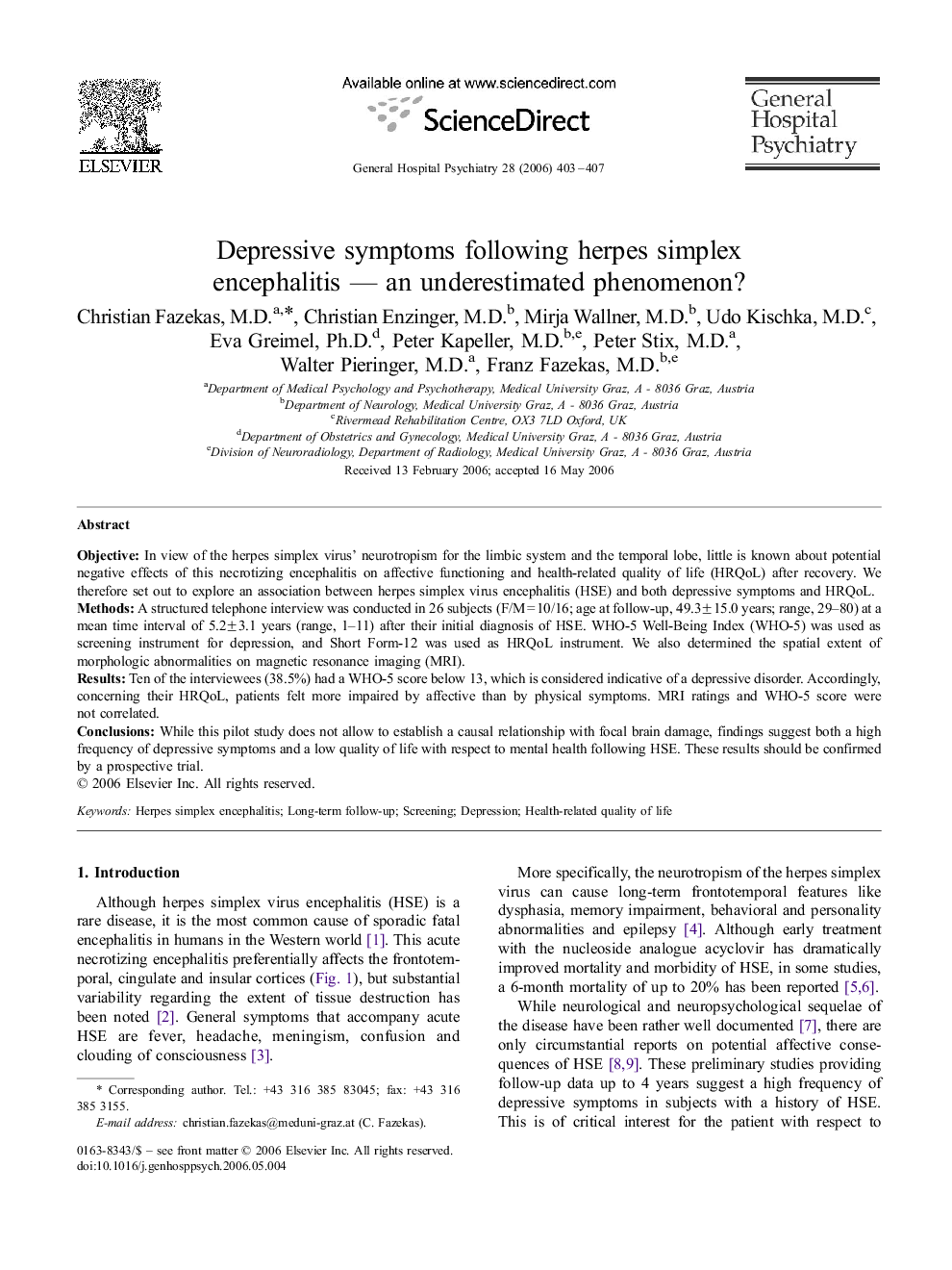| Article ID | Journal | Published Year | Pages | File Type |
|---|---|---|---|---|
| 3238461 | General Hospital Psychiatry | 2006 | 5 Pages |
ObjectiveIn view of the herpes simplex virus' neurotropism for the limbic system and the temporal lobe, little is known about potential negative effects of this necrotizing encephalitis on affective functioning and health-related quality of life (HRQoL) after recovery. We therefore set out to explore an association between herpes simplex virus encephalitis (HSE) and both depressive symptoms and HRQoL.MethodsA structured telephone interview was conducted in 26 subjects (F/M=10/16; age at follow-up, 49.3±15.0 years; range, 29–80) at a mean time interval of 5.2±3.1 years (range, 1–11) after their initial diagnosis of HSE. WHO-5 Well-Being Index (WHO-5) was used as screening instrument for depression, and Short Form-12 was used as HRQoL instrument. We also determined the spatial extent of morphologic abnormalities on magnetic resonance imaging (MRI).ResultsTen of the interviewees (38.5%) had a WHO-5 score below 13, which is considered indicative of a depressive disorder. Accordingly, concerning their HRQoL, patients felt more impaired by affective than by physical symptoms. MRI ratings and WHO-5 score were not correlated.ConclusionsWhile this pilot study does not allow to establish a causal relationship with focal brain damage, findings suggest both a high frequency of depressive symptoms and a low quality of life with respect to mental health following HSE. These results should be confirmed by a prospective trial.
